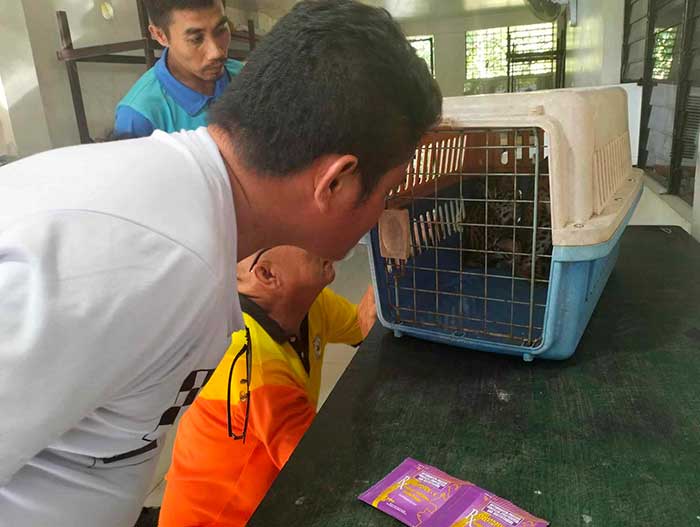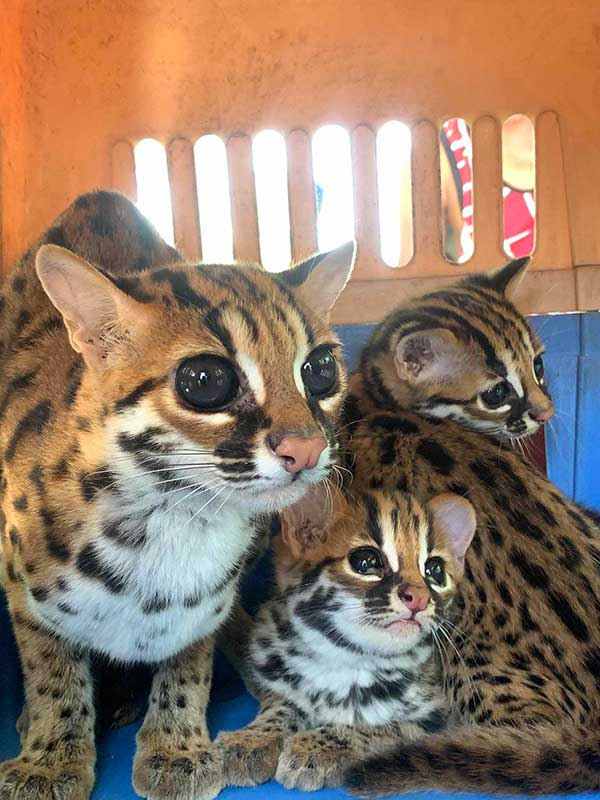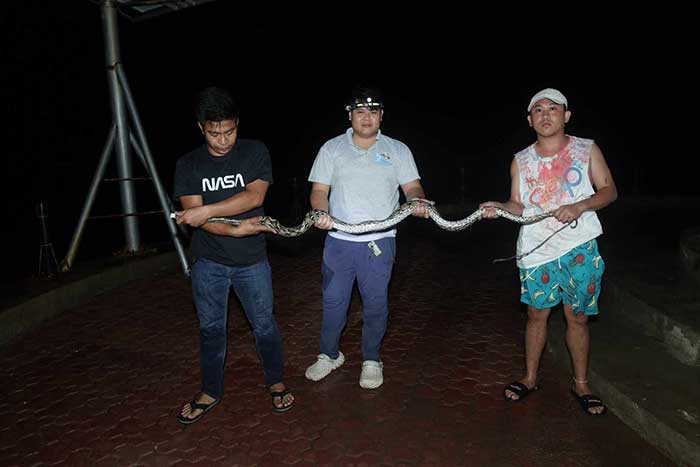DENR-CENRO Cadiz has successfully returned three Visayan leopard cats to their natural habitat.
These wildcats, known locally as “Maral,” were rescued from a sugarcane field in Hacienda Labinay, Cadiz City, thanks to the efforts of local resident Mr. Margarito Sabino.
After a thorough veterinary check-up, the leopard cats were released on March 14, 2024, into a forested area in Sitio Cotcot, Brgy. Mabini, Cadiz City.
This species, which feeds on small mammals, birds, and insects, is endemic to the Visayan islands and is currently vulnerable to extinction, as stated in the DENR Administrative Order No. 2019-09.
The release was led by the Wildlife Unit Head Rezel Purisima and Field Technician I Chelo Abelo, underlining the region’s commitment to preserving its unique biodiversity.
Regional Executive Director Livino B. Duran stressed the collective duty to protect such endemic species, which symbolize Western Visayas’ biodiversity. He emphasized the importance of safeguarding their habitats for the welfare of future generations.
In a separate but equally significant conservation effort, DENR-CENRO Cadiz, along with City ENRO Cadiz, rescued a reticulated python from the Cadiz City Commercial Port on March 7, 2024.
The juvenile male snake, which measured two meters in length, was found to be in good condition and exhibited no injuries.
The reticulated python, noted for being the world’s largest snake species and native to South and Southeast Asia, is considered at risk of disappearing within 5-100 years, as per the same DENR order.
The rescue operation was swiftly conducted by a dedicated team upon notification by Mr. Joseph Caceres of the City Environment and Natural Resources Office-Cadiz.
Director Duran highlighted the crucial role snakes play in maintaining ecological balance across various ecosystems. He urged the public not to harm these creatures but to report any sightings to the authorities for proper handling and conservation efforts.
These actions by DENR-CENRO Cadiz are part of a broader initiative to conserve wildlife and reflect the ongoing efforts to protect and rehabilitate endangered species within the Philippines.























